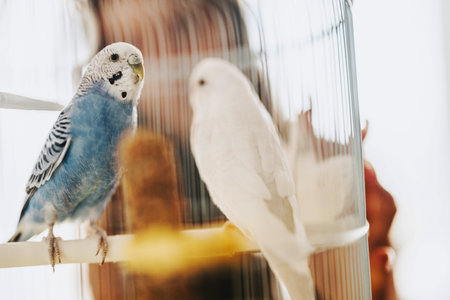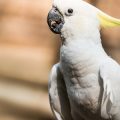Understanding Bird Nutrition Basics
When it comes to caring for pet birds in American homes, understanding their nutrition is the foundation for long-term health. Many first-time bird owners assume that a basic seed mix or pellets are enough to meet all of their feathered friends dietary needs. However, this common misconception can lead to nutritional gaps and even health issues over time. Birds in the wild rely on their natural foraging instincts, sampling a wide variety of seeds, fruits, nuts, greens, and even insects—far more diverse than what’s typically offered in captivity. In our homes, replicating this diet can be challenging. Pet birds often miss out on essential vitamins and minerals found in fresh foods and varied environments. Recognizing these core components—proteins, fats, carbohydrates, vitamins, minerals, and water—allows bird owners to make informed choices about whether supplements are necessary. By observing your bird’s habits and understanding its species-specific needs, you can bridge the gap between natural behaviors and captive care, creating a balanced approach that supports overall well-being.
2. When Birds Might Need Supplements
Just like people, not every bird needs supplements all the time. But there are certain situations where adding specific nutrients to your pet bird’s diet can make a real difference in their health and happiness. In the U.S., many pet birds live indoors, eat commercial seed mixes, or experience unique stresses that make supplementation important at key times.
Common Scenarios for Supplement Use
- Seed-Only Diets: Birds fed mainly on seeds—like parakeets and cockatiels—may miss out on essential vitamins (especially Vitamin A) and minerals (such as calcium), because seeds alone often lack a balanced nutrient profile.
- Life Stages: Young, growing chicks, breeding adults, and aging birds have different nutritional needs. For example, egg-laying females often require extra calcium to prevent egg-binding—a common issue among indoor parrots in American homes.
- Health Issues: Birds recovering from illness, dealing with stress (like moving or new pets in the house), or showing signs of feather plucking may benefit from targeted supplements such as probiotics or omega-3 fatty acids.
Examples Relevant to U.S. Bird Owners
| Scenario | Possible Need | Example Supplement |
|---|---|---|
| Indoor parrots on seed diets | Lack of Vitamin D & Calcium (no sunlight) | Calcium with Vitamin D3 powder |
| Breeding pairs or egg-laying females | High calcium demand | Cuttlebone, mineral blocks |
| Aging or sick birds | Poor absorption or appetite | B-complex vitamins, probiotics |
Consultation Matters
Before starting any supplement regimen, it’s wise for U.S. bird owners to consult with an avian vet familiar with local brands and dietary habits. Over-supplementation can be just as harmful as deficiencies, so targeted use is key for optimal bird wellness.

3. Types of Bird Supplements and What They Do
Understanding the different types of bird supplements is key to making informed decisions for your feathered companions. Not all supplements serve the same purpose, and each category addresses specific needs in a bird’s diet or environment. Here’s a closer look at the most popular categories of avian supplements and what they can do for your pet’s health.
Vitamins
Vitamin supplements are commonly used for birds that don’t receive a varied diet or whose food loses nutrients during storage. Essential vitamins like A, D3, E, and B-complex support everything from immune health to feather quality and energy metabolism. For example, vitamin A is crucial for respiratory health and vibrant plumage, while D3 aids in calcium absorption. American bird owners often reach for multivitamin powders or drops if their birds eat mostly seeds, which tend to be low in certain vitamins.
Minerals
Mineral supplements help fill in nutritional gaps left by commercial diets or limited fresh food options. Key minerals include iron, zinc, selenium, and magnesium—each playing roles in bone development, nerve function, and metabolic processes. Mineral blocks or loose mineral mixes are popular with U.S. parrot keepers who want to ensure their birds have access to trace elements that might not be present in standard feed.
Calcium
Calcium deserves special mention because it is vital for strong bones, egg production in female birds, and proper muscle function. Calcium deficiencies are relatively common among pet birds, especially those fed all-seed diets. In the U.S., cuttlebone and mineral perches are classic sources of supplemental calcium. Liquid or powdered calcium products can also be mixed into food or water if needed under veterinary guidance.
Probiotics
Probiotics are increasingly popular with American bird owners looking to support digestive health and immunity. These beneficial bacteria promote healthy gut flora, helping birds digest food efficiently and resist infections. Probiotic powders designed for avian species can be sprinkled on fresh foods or dissolved in water after antibiotics or during times of stress.
Choosing the Right Supplement
Selecting the right supplement depends on your bird’s species, age, lifestyle, and diet. While each category offers specific benefits, it’s important to avoid over-supplementation—excessive vitamins or minerals can be harmful. Consulting an avian veterinarian before introducing new supplements is always the safest approach for American pet owners committed to their bird’s long-term well-being.
4. How to Safely Introduce Supplements
Adding supplements to your bird’s routine can be beneficial, but doing it safely is key. American bird owners should always prioritize their feathered friend’s well-being by starting slow, monitoring reactions, and consulting with an avian vet before making any changes to the diet. Here’s how you can safely integrate supplements into your bird’s daily life:
Start With the Right Dosage
Never guess the dose. Birds are sensitive creatures, and too much of even a good thing can lead to health issues. Always follow the dosage instructions provided on the supplement packaging or by your veterinarian. Here’s a quick reference for common supplement types:
| Supplement Type | Common Dosage Range* | How Often |
|---|---|---|
| Calcium | 100-200 mg per kg body weight | 2-3 times/week |
| Vitamin D3 | Based on vet recommendation | With calcium, as directed |
| Multivitamins | As per label/vet guidance | 1-2 times/week |
| Probiotics | Small pinch per day | Daily or as needed |
*Always consult your avian vet for your bird’s specific needs.
Mixing Options: Make It Palatable and Safe
- Water-Soluble Supplements: Add only the recommended amount to fresh drinking water each morning. Change water daily so bacteria doesn’t grow.
- Food-Based Powders: Sprinkle onto moist foods like chopped fruits or veggies—this helps the supplement stick and ensures even distribution.
- Treat Integration: Occasionally, you can hide tablets in favorite treats, but don’t overdo it or make treats a staple.
- Avoid Mixing Multiple Supplements: Overlapping nutrients may cause overdoses. Stick to one supplement at a time unless otherwise advised by a professional.
Red Flags: What American Bird Owners Should Watch For
If you notice any of these warning signs after introducing a supplement, stop use immediately and contact an avian vet:
- Lethargy or sudden behavioral changes
- Lack of appetite or refusal to eat/drink
- Unusual droppings (color, consistency, frequency)
- Puffed-up appearance or excessive sleeping during the day
- Sneezing, coughing, or respiratory distress
- Limping or signs of joint pain (especially after calcium supplements)
Troubleshooting: Tips for a Smooth Transition
- If your bird rejects supplemented food or water, try smaller doses and gradually increase as tolerance builds.
- If using water-based supplements, provide an additional source of plain water in case your bird dislikes the taste.
- If you have multiple birds, monitor each individually since some may respond differently to new supplements.
- Keep all supplement containers tightly sealed and stored away from light and heat to preserve potency.
By following these guidelines and staying observant, you’ll ensure that supplements enhance—not compromise—your bird’s health and happiness.
5. Risks of Over-Supplementing
While supplements can play a supportive role in your bird’s health, over-supplementing is a real concern for pet owners in the U.S. It’s easy to assume that “more is better,” but giving birds too many vitamins or minerals can actually do more harm than good. For example, excess vitamin A can cause liver damage, while too much calcium may lead to kidney stones or soft tissue calcification. Birds are highly sensitive to imbalances, and their small size means even minor overdoses can have major consequences.
Moderation is crucial when introducing any supplement into your bird’s diet. Most avian veterinarians recommend that birds eating a balanced, high-quality commercial pellet rarely need extra supplementation unless advised by a professional. Over-supplementing can also mask underlying health problems—making it harder for your vet to diagnose issues correctly.
To keep your feathered friend safe and healthy, always consult with an avian vet before starting any new supplements. Remember: the goal is to meet your bird’s needs, not exceed them. Respecting the delicate balance of nutrients will help your bird thrive rather than put them at risk.
6. Best Practices: Consulting Your Avian Vet
When it comes to supplementing your bird’s diet, there’s no one-size-fits-all solution—each species and individual bird has unique nutritional needs. That’s why partnering with an avian veterinarian is the smartest move for pet parents in the U.S. Not only can your vet help you determine if your bird actually needs supplements, but they can also craft a personalized plan based on age, health status, diet, and lifestyle habits.
Why Collaboration Matters
Avian vets are trained to spot subtle signs of nutrient deficiencies or excesses that might go unnoticed by even the most observant owners. They’ll consider factors like molting cycles, breeding behavior, and even changes in environment that could affect your bird’s health. By working together, you can avoid the pitfalls of over-supplementation—which can be just as harmful as not supplementing at all—and ensure your feathered friend gets exactly what they need.
Reading Product Labels: A U.S. Perspective
The supplement aisle can be overwhelming with flashy labels and bold claims. In the United States, it’s essential to check for products manufactured by reputable brands that follow guidelines set by the Association of American Feed Control Officials (AAFCO) or similar organizations. Look for clear ingredient lists, expiration dates, and batch numbers. Avoid products with vague “proprietary blends,” unproven claims, or ingredients not recommended by your vet.
Questions to Ask Your Vet
If you’re unsure about a product or dosage, bring it up at your next appointment. Good questions include: Is this supplement species-appropriate? What’s the correct dosage and frequency? Are there possible interactions with my bird’s current medications or food? Your vet may also recommend blood work or other diagnostics to fine-tune their recommendations.
Building a Healthy Routine Together
In short, making supplements part of your bird’s wellness routine should always be a team effort between you and your avian vet. This collaborative approach ensures safety, maximizes benefits, and gives you peace of mind knowing you’re supporting your bird’s health with confidence and care.


